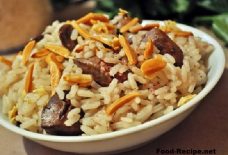'Poetry is a witness' to suffering wrought by Syria's civil war
The words are bound in blood and speak of graves and broken bones.
The poetry radiating from the Syrian civil war echoes with nostalgia, bombs and betrayals; it slips into the lives of torn-apart families and boys of defiance who have grown into men with bandoleers and Kalashnikovs. It is the verse of the forsaken in a nation of madmen with black flags, cities of ruin and rivers of refugees.
The poems flow in slipstreams of syllables, beats and rhythms composed by writers, doctors, mothers, activists and Syrians who live abroad but are compelled to articulate the suffering in their ancestral land. They are all connected: The old man in a Turkish refugee camp clings to a few pages of his scribbled verse. Syrian American hip-hop artist Omar Offendum riffs through songs of admonition and loss. And Amal Kassir summons the blistered hands and shattered orchard on her grandmother’s farm.
My grandmother knows Syria better than anyone.
It is the arthritis living in her knees.
She had a farm whose dust she knew by name.
… And the tyrant,
The dirt is waiting for him.
Like the rest of us,
He will learn his grave,
Feel the weight of the entire country on his chest.
Amal Kassir recites her poem ‘Syria.’
A 20-year-old Syrian American college junior, Kassir wrote “My Grandmother’s Farm” while waiting tables at her father’s Syrian restaurant in Littleton, Colo. She and her family lived outside Damascus from 2002 to 2005, and these days Kassir travels the world drawing attention to Syria through rallies and slam poetry performances. She carries a book bag and wears a hijab; when she reads, her voice blooms with a girl’s pitch tempered by a woman’s wisdom.
The war has “captivated all of my poetry,” said Kassir, who is finalizing a collection of poems titled “Scud Missile Blues.” “It’s something profound when you can compare the color of a pomegranate to the color of blood on the ground. There is color and scent and sound involved.”
But years of relentless conflict and human rights abuses have at times silenced her verse. “I had a dry spell with my poetry for nine months,” she said. “I was rooted in depression. I felt the world had betrayed us.”
Since the revolution began in 2011, more than 200,000 people have been killed. More than 4 million refugees have spilled from Syria’s borders; at least 7.6 million others have been internally displaced. The war has spun into a confusing roulette of air strikes, chemical attacks, rebels, Islamic militants and the designs of the U.S. and Russia over what will befall President Bashar Assad.
Source: www.latimes.com


